Today I received a shipment from Tropic Flow, I received a Sorority, 6 TEMA is & 1 platinum dumbo mail. The shipping container & packaging were outstanding. These fish are beautiful & healthy.Great work, I will highly recommend Tropic Flow
How To Breed Betta Fish At Home?
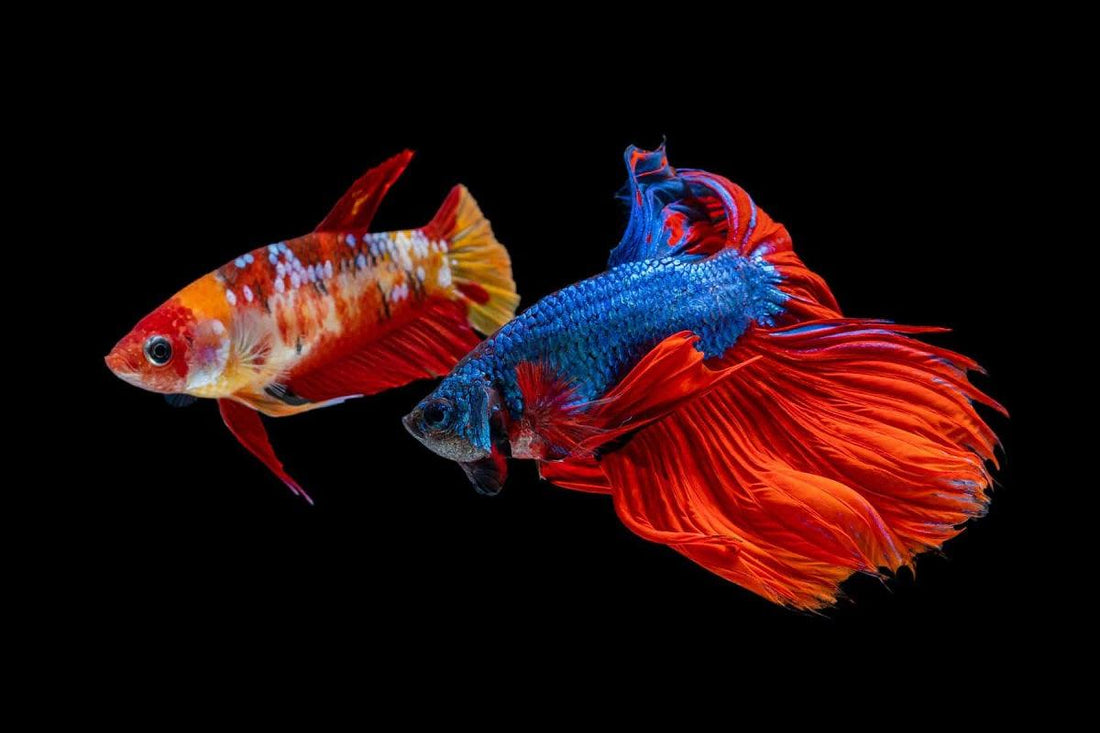
What is Betta Fish?
Betta fish, scientifically known as Betta "splendens", are small freshwater fish native to Southeast Asia, particularly Thailand, Cambodia, Vietnam, and Laos. They are popular aquarium fish known for their vibrant colors, distinctive fin shapes, and unique behaviors.
Betta fish are also commonly referred to as Siamese fighting fish due to their territorial and aggressive nature, especially among males. In the wild, male Betta fish will often engage in aggressive territorial disputes, which has led to their reputation as fighters. Because of this behavior, it's generally not advisable to keep multiple male Betta fish together in the same aquarium, as they may fight.

What to prepare to breed betta fish
Breeding Betta fish can be a rewarding but challenging endeavor. To prepare for breeding Betta fish, you'll need to gather the necessary equipment and create the right environment for the breeding pair. Here's a step-by-step guide on what to prepare to breed betta at home:
Separate Tanks for Male and Female Betta
You will need separate tanks for the male and female Betta fish. These tanks should be at least 5-10 gallons in size and equipped with a heater to maintain a stable temperature between 78-80°F (25-27°C). Additionally, ensure that the tank is placed in a quiet area with minimal activity and distractions.
Healthy Breeding Pair
Select a healthy male and female Betta for breeding. Look for fish with vibrant colors and fins in good condition and active. The best advice for beginners is to pair Betta fish of the same type, such as Plakat (Short Tail) with Plakat or Halfmoon with Halfmoon (Long Tail).
Conditioning the Fish
Before introducing the male and female, you should condition them separately with a high-quality diet. Feed them live or frozen foods like bloodworms or brine shrimp to enhance their health and reproductive readiness. This step is very importance, slowly introducing betta fish is the key to have many fry betta fish.
Spawning Tank Setup
Set up a separate breeding or spawning tank. It should have gentle filtration and be densely planted with live or artificial plants. The tank should have hiding places and a floating container or bubble nest for the male to build his nest.
Introducing the Betta Pair
Place the female Betta in a clear glass container or a partitioned area within the breeding tank. This allows them to see each other without direct contact, reducing the risk of injury. We recommend that you should keep female betta fish in the glass container or glass cup to separate with male betta fish for the first 30 minutes.
Monitoring Behavior
Keep a close eye on the behavior of the pair. The male will start building a bubble nest, and the female may show signs of readiness, such as vertical stripes on her body. Once both are ready, remove the partition, and let them interact.
Spawning and Nest Care

The male will entice the female to the bubble nest to spawn. After spawning, the female should be removed immediately to prevent aggression from the male. He will then care for the eggs and fry, protecting them and tending to the bubble nest. The fact, male betta fish is one of the best father in the tropical fish world.
Food Feeding Fry

Once the fry hatch, feed them atermia or specialized fry food until they are large enough to accept powdered or crushed flake food. You should provide fry with finely powdered food and avoid overfeeding to maintain water quality and the health of fry.
Maintaining Water Quality
Maintain excellent water quality by performing regular water changes. Be cautious not to disturb the bubble nest or fry during water changes. During breeding period, try to avoid water change or disturb bubble nest.

Separating Fry
As the fry grow, they should be separated into individual containers or larger tanks to prevent overcrowding and potential aggression among siblings. The sign that you can separating fry is they can swim and eat.
Continued Care
Caring for Betta fry demands continuous attention and vigilance. It's crucial to closely observe their growth, monitor water quality, and provide a well-balanced diet to facilitate their transformation into robust adult fish. In our experience, approximately 50% of Betta fry thrive and reach adulthood, while around 25% may exhibit weaker growth and remain relatively small in size.
When You Can Breed Betta Fish?
In the wild, Betta fish tend to breed in the rainy season, when water levels are high and there is plenty of food available for the fry. In captive breeding situations, the breeding season can be extended to year-round with the proper conditions and care.
When Betta Fish Ready to Breed?

When a male Betta is ready to breed, he will flare his fins and display his colors to attract a female. If the female is interested, the two will engage in a courtship dance, during which the male will continue to build his bubble nest and the female will lay her eggs. The male will then fertilize the eggs and place them in the bubble nest for protection.
It is important to provide a suitable breeding environment for Betta fish, such as a separate tank with appropriate water conditions, plenty of plants for the female to lay her eggs, and a soft substrate for the male to build his bubble nest. After breeding, it is recommended to separate the male and female to prevent further aggression.
What Does the Breeding Process of Betta Fish Involve?

Preparation
Before breeding, make sure both the male and female Bettas are healthy and well-fed. The breeding tank should have a temperature between 75-82°F and a pH between 6.5-7.0. It's important to provide plenty of hiding places and plants for the female to lay her eggs, as well as a soft substrate for the male to build his bubble nest.
Courtship
The male Betta will flare his fins and display his colors to attract the female. If the female is receptive, she will approach the male and the two will engage in a courtship dance. During this time, the male will continue to build his bubble nest.
Egg-laying
Betta Fish Egg-Laying
The female will lay her eggs on a surface, usually a plant or leaf, in the breeding tank. The male will then fertilize the eggs and place them in the bubble nest for protection.
Nest-tending
The male Betta will guard the bubble nest and continuously tend to the eggs, keeping them aerated and protecting them from any potential threats.
Hatching
The eggs will hatch in 24-36 hours, and the fry will swim freely in the breeding tank. At this point, it is recommended to remove the male to prevent him from attacking the fry. The fry will need to be fed a diet of small live or frozen foods until they are large enough to eat dry or frozen foods.
Conclusion
Breeding Betta fish at home can be a rewarding and fascinating endeavor for aquarists. It allows you to witness the remarkable process of life unfolding in your own aquarium. However, it's essential to approach breeding with careful planning, patience, and knowledge of the specific needs of Betta fish. By following the right steps and providing a suitable environment, you can experience the joy of raising a new generation of these captivating and vibrant fish while contributing to the conservation of these beautiful species.Hi! I’m Brianna. I am just on your website right now and I just KNOW that we can get you LOTS of new customers. Visit enkaiyo.com for details on this special offer TODAY for customers including you, if you want to start getting new customers TODAY, get 1 Year FREE and ‘70%’ Discount just by going to enkaiyo.com/70discount.html – Let me know! Brianna (vc67lmjk6z)

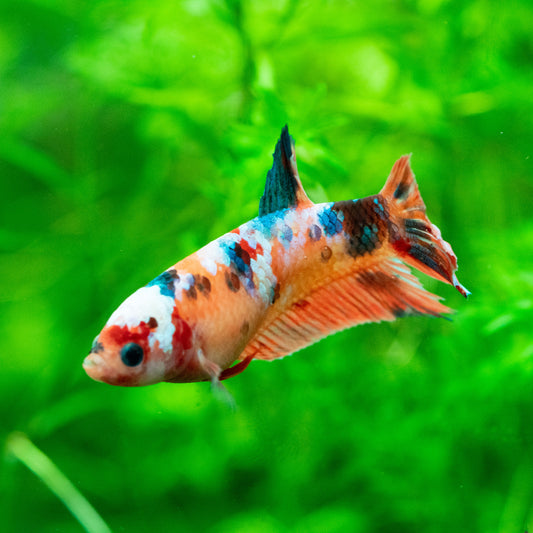
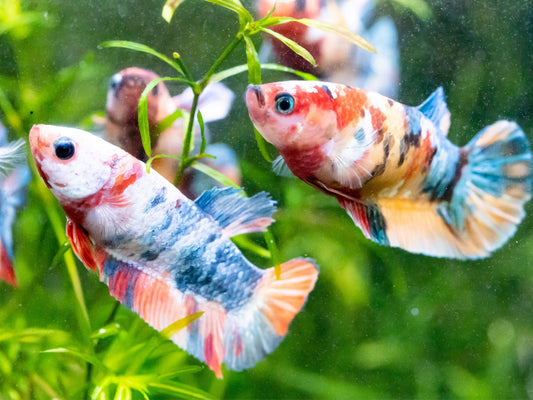

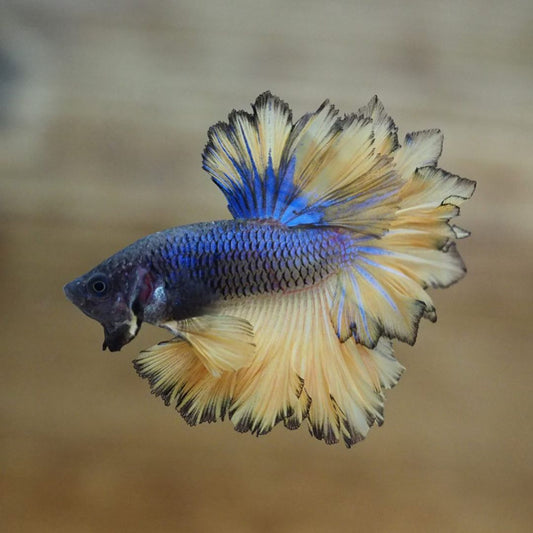
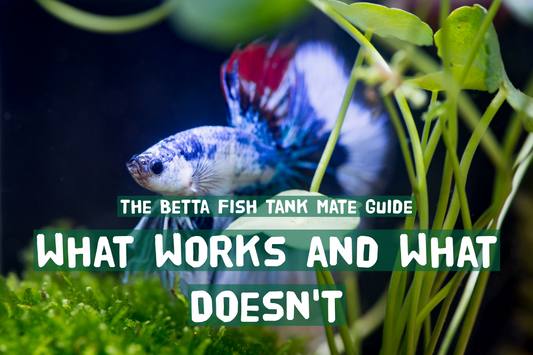
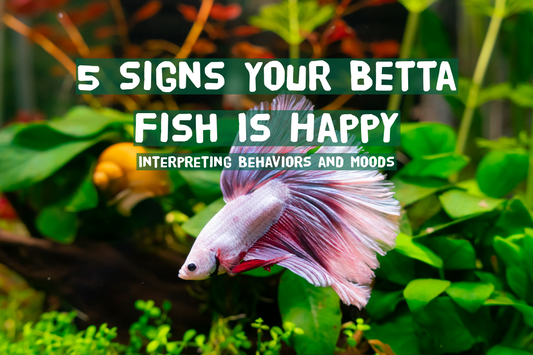
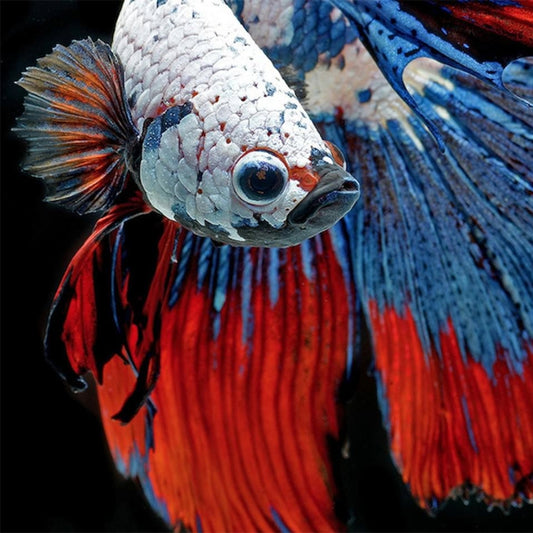
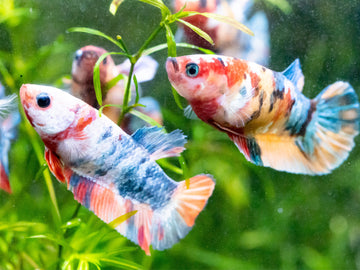
2 comments